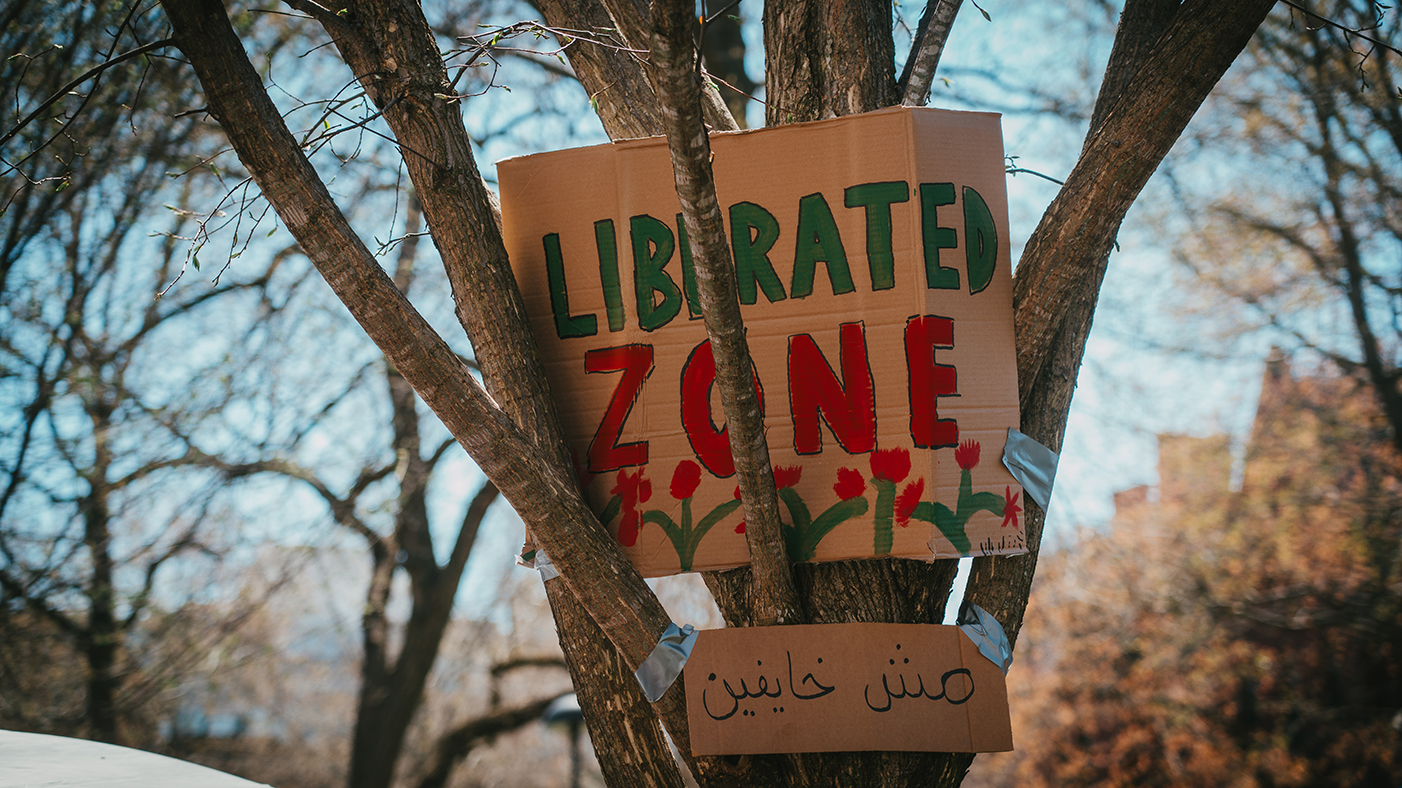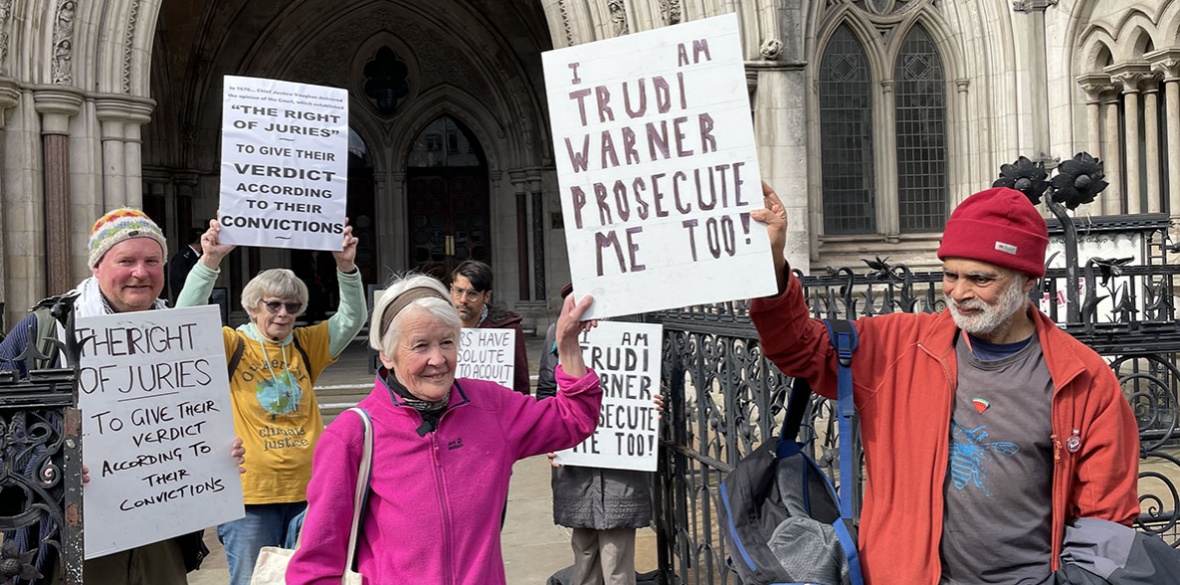Students stand with Palestine, Palestine stands with students
Original article by Natalia Marques republished from peoples dispatch under a Creative Commons Attribution-ShareAlike 4.0 (CC BY-SA) license.

Fighting people across the world show support with the student movement in the US facing repression
“We, the students of Gaza, salute the students of Columbia University, Yale University, New York University, Rutgers University, the University of Michigan, and dozens of universities across the United States who are rising up in solidarity with Gaza and to put an end to the Zionist-US genocide against our people in Gaza,” wrote the Student Frameworks Secretariat, composed of a variety of student organizations part of larger resistance groups and left parties—including but not limited to the Islamic Resistance Movement, the Democratic Front for the Liberation of Palestine, the Islamic Jihad Movement in Palestine, Fatah, the Popular Front for the Liberation of Palestine, and the Palestinian People’s Party. The Gazan students are expressing their support for the dozens of student encampments that have emerged in the United States, in which students occupy public spaces in their universities to demand that their institutions divest from Israel.
“We welcome the examples of solidarity offered by students facing arrest, police violence, suspension, eviction, and expulsion in order to demand that their universities end their complicity in the Zionist-US genocide and renounce their support for the occupation and the war profiteers that arm it,” the students stated, referring to the central demand of divestment that has been leveraged by students in the encampments.
Palestinians sheltering in the without tears humanitarian camp in Rafah have created banners in support of US students, which they have hung on their tents. The banners read “From Rafah we send you strength,” “the children [of] Gaza are proud of you,” and “thank you students for Columbia uni.”
On April 26, millions gathered on Sana’a Square in Yemen, some holding banners with images from the US student encampments. Their banners showed images from Columbia and other encampments across the country, and featured slogans such as: “To the brave American students, stand your ground! Yemen stands with you! For a free Palestine!” “Dear American Student: They can arrest you, but they can never break your spirit!” and “The Columbia encampment was just the spark! Long live the great student revolution!”
Bisan Owda, a Gazan journalist whose on-the-ground broadcasts of the Israeli genocide have reached millions if not billions across the world, released a video applauding the student protesters. “I’ve lived my whole life in Gaza Strip and I’ve never felt hope like now,” she said. “For the first time in our lives a Palestinians, we hear a voice louder than their voices and the sound of their bombs…It’s children and youth who are leading the movement now for a free Palestine, putting everything they have on the line to demand justice, an end to the genocide, and a new era of the world.”
Students staging peaceful encampments have been met with brutal force by their administrations, who have launched police attacks.
Police deployed snipers near the Gaza Solidarity Encampment at Ohio State University, and beat, tased, and arrested protesters.
Students were also brutalized while staging an encampment at Emory University in Atlanta, Georgia. Students at the Emory Gaza Solidarity Encampment had drawn powerful links between the struggle for Palestine and the struggle against Cop City, a multi-million dollar urban warfare training ground for US police. Students demanded not only divestment of the university from Israel, but also to divest from the construction of Cop City.
Emory students were brutalized by Atlanta police within hours of setting up their encampment. Police fired rubber bullets and teargas at protesters, tased a student, and detained both students and faculty.
On the night of April 24, Emerson College students in Boston, staging an encampment in solidarity with Gaza, were brutally evicted by Boston police. So brutally, in fact, that video from the next day showed city workers hosing off what appeared to be blood from the streets of the former encampment.
Students across the country staging encampments in solidarity with Palestine, in opposition to the genocide and in favor of liberation, have been subject to all manner of state repression. Faculty have watched in horror as their administrations call the police to brutally arrest students, many of whom are undergraduates.
In response to the University of Texas – Austin calling in state troopers to arrest students staging a Gaza Solidarity Encampment, faculty at the university expressed deep concern “for our students’ well-being and safety.”
“We have witnessed police punching a female student, knocking over a legal observer, dragging a student over a chain link fence, and violently arresting students simply for standing at the front of the crowd,” the faculty stated. “There can be no business as usual when our campus is occupied by city police and state troopers who are preventing our students from engaging in a peaceful demonstration of their first amendment rights.” The faculty are calling for what is effectively a strike, declaring, “No business as usual tomorrow. No classes. No grading. No work. No assignments.”
Ansar Allah in Yemen, which has been boldly resisting Israeli genocide through its blockage of ships with ties to Isreal in the Red Sea, released a statement condemning the police crackdown on student protesters. “This unjustified repression exposes the falsity of the US government’s claims to defend freedom, protect human rights, and spread democracy,” the organization declared. “We affirm the right of American citizens to demonstrate peacefully, and we value the moral stance of the demonstrators, which expresses an increased state of societal awareness in the face of the official US policy supporting Israeli crimes in Gaza.”
Original article by Natalia Marques republished from peoples dispatch under a Creative Commons Attribution-ShareAlike 4.0 (CC BY-SA) license.



